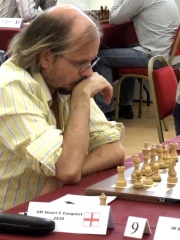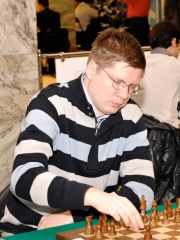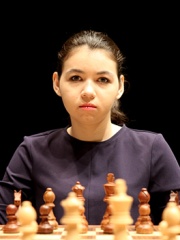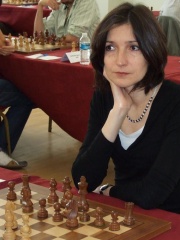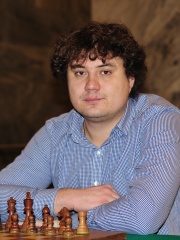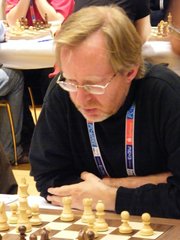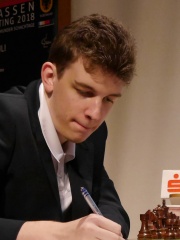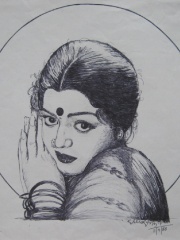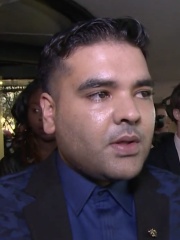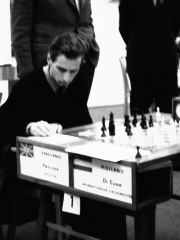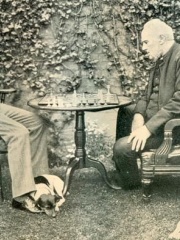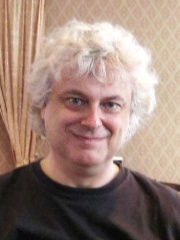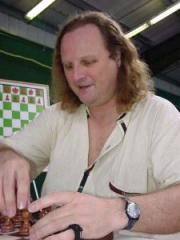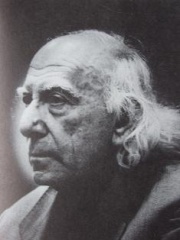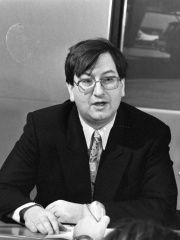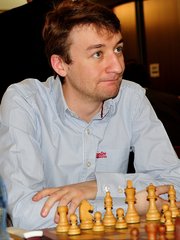Joueur d'échecs
Stuart Conquest
1967 - aujourd'hui
FR.WIKIPEDIA PAGE VIEWS (PV)
 Stuart Conquest
Stuart Conquest
Sa biographie est disponible en 23 langues sur Wikipédia. Stuart Conquest est le 365th joueur d'échecs le plus populaire (en baisse du 323rd en 2024), la 7,416th biographie la plus populaire du Royaume-Uni (en baisse du 7,066th en 2019), ainsi que le 16th joueur d'échecs du Royaume-Uni le plus populaire.
Memorability Metrics
Page views of Stuart Conquest by language
Among Joueur d'échecs
Among joueur d'échecs, Stuart Conquest ranks 365 out of 461. Before him are Elisabeth Pähtz, Vladimir Malakhov, Daniil Dubov, Aleksandra Goryachkina, Alexander Goldin, and Ketevan Arakhamia-Grant. After him are Irisberto Herrera, Anton Korobov, Murray Chandler, Wesley So, Jan-Krzysztof Duda, and Ashot Nadanian.
Most Popular Joueur D'échecs in Wikipedia
Go to all RankingsElisabeth Pähtz
1985 - Present
HPI: 42.32
Rank: 359
Vladimir Malakhov
1980 - Present
HPI: 42.29
Rank: 360
Daniil Dubov
1996 - Present
HPI: 42.25
Rank: 361
Aleksandra Goryachkina
1998 - Present
HPI: 42.25
Rank: 362
Alexander Goldin
1964 - Present
HPI: 42.10
Rank: 363
Ketevan Arakhamia-Grant
1968 - Present
HPI: 42.09
Rank: 364
Stuart Conquest
1967 - Present
HPI: 42.07
Rank: 365
Irisberto Herrera
1968 - Present
HPI: 41.81
Rank: 366
Anton Korobov
1985 - Present
HPI: 41.80
Rank: 367
Murray Chandler
1960 - Present
HPI: 41.74
Rank: 368
Wesley So
1993 - Present
HPI: 41.72
Rank: 369
Jan-Krzysztof Duda
1998 - Present
HPI: 41.71
Rank: 370
Ashot Nadanian
1972 - Present
HPI: 41.61
Rank: 371
Contemporaries
Among people born in 1967, Stuart Conquest ranks 1,016. Before him are Naruyuki Naito, Bhanupriya, Mika Kuusisto, Mick Mulvaney, Ingo Steinhöfel, and Debi Thomas. After him are Shankar Mahadevan, Randolph Bresnik, Hiroaki Nagashima, Steven Levitt, Ladislav Lubina, and Chuck Hogan.
Others Born in 1967
Go to all RankingsNaruyuki Naito
SOCCER PLAYER
1967 - Present
HPI: 42.18
Rank: 1,010
Bhanupriya
ACTOR
1967 - Present
HPI: 42.18
Rank: 1,011
Mika Kuusisto
SKIER
1967 - Present
HPI: 42.16
Rank: 1,012
Mick Mulvaney
POLITICIAN
1967 - Present
HPI: 42.12
Rank: 1,013
Ingo Steinhöfel
ATHLETE
1967 - Present
HPI: 42.11
Rank: 1,014
Debi Thomas
SKATER
1967 - Present
HPI: 42.09
Rank: 1,015
Stuart Conquest
CHESS PLAYER
1967 - Present
HPI: 42.07
Rank: 1,016
Shankar Mahadevan
SINGER
1967 - Present
HPI: 42.04
Rank: 1,017
Randolph Bresnik
ASTRONAUT
1967 - Present
HPI: 42.04
Rank: 1,018
Hiroaki Nagashima
SOCCER PLAYER
1967 - Present
HPI: 42.02
Rank: 1,019
Steven Levitt
ECONOMIST
1967 - Present
HPI: 42.02
Rank: 1,020
Ladislav Lubina
HOCKEY PLAYER
1967 - 2021
HPI: 42.02
Rank: 1,021
Chuck Hogan
WRITER
1967 - Present
HPI: 42.01
Rank: 1,022
In Royaume-Uni
Among people born in Royaume-Uni, Stuart Conquest ranks 7,418 out of NaN. Before him are Anna Calvi (1980), Arthur Albiston (1957), Frank Gray (1954), Paul Epworth (1974), Rico Lewis (2004), and Jack Aitken (1995). After him are Rolfe Kent (1963), Joe Anderson (1982), Max Chilton (1991), Neil Webb (1963), Jen Ledger (1989), and Naughty Boy (1985).
Others born in Royaume-Uni
Go to all RankingsAnna Calvi
SINGER
1980 - Present
HPI: 42.15
Rank: 7,412
Arthur Albiston
SOCCER PLAYER
1957 - Present
HPI: 42.15
Rank: 7,413
Frank Gray
COACH
1954 - Present
HPI: 42.15
Rank: 7,414
Paul Epworth
MUSICIAN
1974 - Present
HPI: 42.15
Rank: 7,415
Rico Lewis
SOCCER PLAYER
2004 - Present
HPI: 42.11
Rank: 7,416
Jack Aitken
RACING DRIVER
1995 - Present
HPI: 42.10
Rank: 7,417
Stuart Conquest
CHESS PLAYER
1967 - Present
HPI: 42.07
Rank: 7,418
Rolfe Kent
COMPOSER
1963 - Present
HPI: 42.06
Rank: 7,419
Joe Anderson
ACTOR
1982 - Present
HPI: 42.06
Rank: 7,420
Max Chilton
RACING DRIVER
1991 - Present
HPI: 42.06
Rank: 7,421
Neil Webb
SOCCER PLAYER
1963 - Present
HPI: 42.06
Rank: 7,422
Jen Ledger
MUSICIAN
1989 - Present
HPI: 42.05
Rank: 7,423
Naughty Boy
SINGER
1985 - Present
HPI: 42.05
Rank: 7,424
Among Joueur d'échecs In Royaume-Uni
Among joueur d'échecs born in Royaume-Uni, Stuart Conquest ranks 16. Before him are Jonathan Penrose (1933), John Owen (1827), John Nunn (1955), Tony Miles (1955), Harry Golombek (1911), and Raymond Keene (1948). After him are Jovanka Houska (1980), and Luke McShane (1984).
Jonathan Penrose
1933 - 2021
HPI: 53.30
Rank: 10
John Owen
1827 - 1901
HPI: 52.35
Rank: 11
John Nunn
1955 - Present
HPI: 52.13
Rank: 12
Tony Miles
1955 - 2001
HPI: 51.91
Rank: 13
Harry Golombek
1911 - 1995
HPI: 49.43
Rank: 14
Raymond Keene
1948 - Present
HPI: 48.94
Rank: 15
Stuart Conquest
1967 - Present
HPI: 42.07
Rank: 16
Jovanka Houska
1980 - Present
HPI: 33.49
Rank: 17
Luke McShane
1984 - Present
HPI: 33.45
Rank: 18
